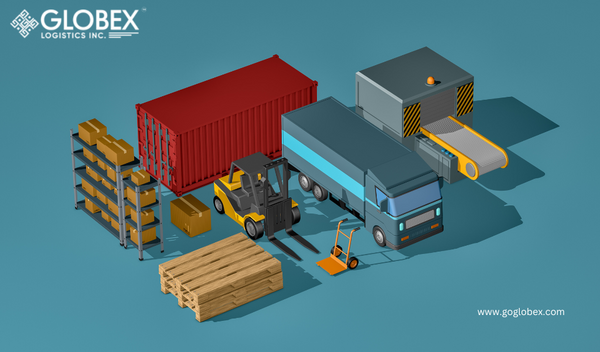Notifications
ALL BUSINESS
COMIDA
DIRECTORIES
ENTERTAINMENT
FINER THINGS
HEALTH
MARKETPLACE
MEMBER's ONLY
MONEY MATTER$
MOTIVATIONAL
NEWS & WEATHER
TECHNOLOGIA
TV NETWORKS
VIDEOS
VOTE USA 2026/2028
INVESTOR RELATIONS
DEV FOR 2025 / 2026
ALL BUSINESS
COMIDA
DIRECTORIES
ENTERTAINMENT
FINER THINGS
HEALTH
MARKETPLACE
MEMBER's ONLY
MONEY MATTER$
MOTIVATIONAL
NEWS & WEATHER
TECHNOLOGIA
TV NETWORKS
VIDEOS
VOTE USA 2026/2028
INVESTOR RELATIONS
DEV FOR 2025 / 2026
About Me
 Johns mayer
Johns mayer Johns is a passionate content writer with a knack for crafting engaging, SEO-friendly content. With expertise in diverse industries, he creates compelling blogs, articles, and web copy that captivate audiences and drive results. Dedicated to storytelling and creativity, he delivers content that resonates.
 Johns mayer -
Apr 3 -
Business -
warehousing in logistics
warehousing in logistics management
importance of warehousing in logistics
role of warehousing in logistics
benefits of warehousing in logistics
-
141 views -
0 Comments -
0 Likes -
0 Reviews
Johns mayer -
Apr 3 -
Business -
warehousing in logistics
warehousing in logistics management
importance of warehousing in logistics
role of warehousing in logistics
benefits of warehousing in logistics
-
141 views -
0 Comments -
0 Likes -
0 Reviews

Warehousing is an essential part of logistics that helps in the efficient transition of goods and products within the supply chain. The growing emphasis on warehousing in logistics is becoming increasingly apparent as the sector modernises. Tech advancements, automation, and strategic location planning are shaping the future of warehousing in logistics. Business that embrace modern warehousing solutions will benefit from increased efficiency, cost savings, and higher customer satisfaction.
Storage of goods involves warehousing in the supply chain, which plays a pivotal role in logistics management. Warehousing in logistics is associated with inventory control, order picking, and delivering continuous goods movement between suppliers and consumers. Time: With advanced warehousing solutions, such as automation and improved inventory management, organizations are able to shorten delivery times, lower transportation costs and enable efficient operations.
Understanding Why Warehousing in Logistics is Important Warehousing plays a crucial role in logistics, and businesses need to deliver the goods to customers on time. As a result, some of the key reasons which make warehousing important are:
Inventory Management: Warehouses provide companies with the ability to effectively control stock levels, which helps avoid shortages or excessive inventory.
Enhanced customer satisfaction: Faster and accurate order processing results in better customer service
Cost-Effective: Proper storage reduces the storage cost and transportation cost, thus enhancing profits.
Warehouses near demand centers lead to shorter delivery times and lower logistics costs due to strategic location advantages.
Warehousing is a part of logistics and has advantages beyond storage and invetory management. Innovative warehousing technology is causing a digital transformation across industries. Some of the key advantages are as follows:
Modern warehousing solutions also facilitate efficient supply chain operations, allowing products to be readily available when required. Inventory management systems optimize lead times, order fulfilment rates, etc.
Automation, AI and robotics are set to transform the future of warehousing in logistics. With automation in storage and retrieval systems (AS/RS) and smart inventory tracking, businesses are leveraging this technology to reduce errors, costs, and increase overall efficiency.
Advanced warehousing solutions assist businesses with soaring costs because of improved storage layouts, waste reduction, and energy-efficient facilities. This reduces maintenance costs and increases operational efficiency.
Scalability Warehouses built for scalability enable businesses to respond to shifting market requirements. Flexible warehousing solutions allow businesses to grow operations without significant upheaval.
Logistics management with warehousing ensures safe storage of goods implemented with various security measures such as CCTV monitoring, automatic locks, fire prevention systems, etc. This reduces the risk of theft or damage.
Several emerging trends are redefining warehousing operations in the logistics industry. Some key trends include:
AI and Machine Learning: Predictive analytics and AI-driven automation help improvise human decision making in warehousing process.
Sustainable warehousing: The trend towards environmentally-friendly storage solutions, including warehouses powered by solar energy and energy-efficient systems, is on the rise.
Logistics: Blockchain technology ensures secure and transparent record-keeping and increases visibility in the supply chain.
On-Demand Warehousing: Seasonal changes in demand are catered effectively by adapting flexible storage solutions by businesses.
As a result, logistics warehousing will be more agile, efficient, and technology-oriented in the future. Warehousing has always been critical in logistics, but automation, AI, and sustainability continue to change the rules of the game. Companies that will understand the significance of Warehousing in Logistics and invest in the right warehousing models will surely knock this inhibited competition out of the park. All these advantages contribute to a proper slack or surplus of the stock in the warehouse so that the flow of work is carried out smoothly, and the overall efficiency also increases, which is essentially what is required in logistic. Investment in advanced warehousing in logistics management is critical for businesses seeking supply chain optimisation and long-term success.
